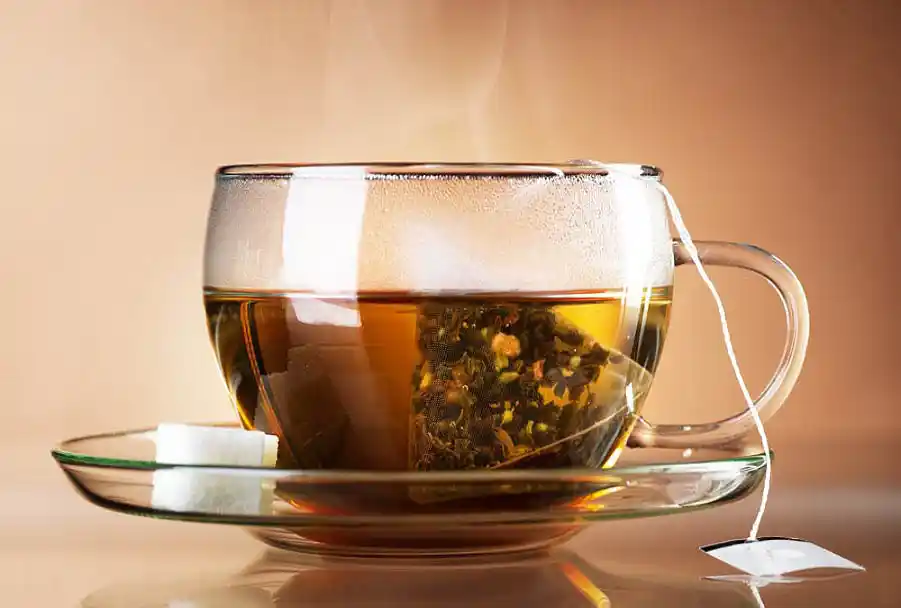In the serene moments of a cozy afternoon or amidst the rush of a hectic day, a warm cup of tea often acts as a comforting companion. Yet, beneath the surface of its soothing embrace, lies a tale of caution and concern. While tea is revered for its numerous health benefits, ranging from antioxidant properties to potential weight management aid, the shadows of potential risks to our intestines and brain lurk within the teacup. Let us embark on a journey to unravel these hidden dangers, shedding light on the darker side of tea consumption.
The Delicate Balance: Intestines and Brain Connection
Before delving into the perils, it is crucial to grasp the intricate connection between our intestines and brain. The gut-brain axis, a complex network of communication pathways, orchestrates a symphony of signals between these vital organs. Disruptions in this delicate balance can reverberate throughout our bodies, manifesting in various health concerns.
Heavy Metal Melancholy: The Menace Within
Picture this: as you sip on your favorite brew, unsuspecting of any harm, heavy metals stealthily make their way into your system. Lead, cadmium, and aluminum, silent intruders lurking in contaminated tea leaves, pose a grave threat to our well-being. Prolonged exposure to these insidious elements can wreak havoc on our intestines, disrupting their delicate ecosystem, and even infiltrating the sanctuary of our brains, casting shadows of toxicity.
Pesticide Paranoia: The Price of Production
In the pursuit of bountiful harvests, however, the veil of pesticide residues shrouds tea plantations. Despite being sprayed with good intentions, these chemicals linger, leaving behind a toxic legacy. Consequently, with each sip, we unwittingly ingest residues that may unleash havoc on our intestines, disrupting their harmony. Moreover, the brain, our fortress of cognition, may not be spared, as these chemicals breach its defenses, potentially impairing its functions.
Caffeine Chronicles: A Jolt to the System
Ah, the invigorating rush of caffeine, the very essence of many tea blends. Yet, like a double-edged sword, its embrace can cut deep. While moderate consumption offers a welcome boost, excessive intake may stir up a tempest within our intestines, leading to discomfort and distress. Moreover, the brain, sensitive sentinel of our senses, may reel under the onslaught of caffeine-induced tremors and anxiety, disrupting its tranquil sanctuary.
Oxalate Odyssey: Stones in the Stream
Enter the realm of oxalates, unsuspecting culprits lurking within certain tea varieties. As they flow through our intestines, they may pave the path to the formation of kidney stones, a painful reminder of their potency. Moreover, their interference with nutrient absorption may cast shadows over our brain’s vitality, impeding its nourishment and function.
Tannin Troubles: The Bitter Aftertaste
Tannins, bitter companions in many tea varieties, leave their mark on our intestines, disrupting the delicate balance of nutrient absorption. Iron, a vital ally in our body’s arsenal, may find itself under siege, as tannins hinder its absorption, potentially leading to anemia. The brain, starved of its essential nourishment, may falter in its cognitive endeavors, echoing the bitter aftertaste of tannin troubles.
Mold Misery: Shadows in the Brew
In the depths of storage, unseen adversaries lurk within our tea leaves. Mold, the harbinger of misery, thrives in damp darkness, unleashing toxins that poison our bodies. With each sip, we unwittingly ingest these insidious invaders, their effects echoing within our intestines and casting shadows over the sanctuary of our brains.
Navigating the Path Forward: A Beacon of Awareness
Armed with knowledge, we embark on a journey of mindfulness, navigating the path forward with caution and clarity. Choosing high-quality, organic teas, free from contamination, becomes our beacon of hope. Through proper storage and mindful consumption, we safeguard our well-being, ensuring that the shadows of potential risks never overshadow the joys of tea’s embrace.
In conclusion, while the teacup may hold the promise of comfort and solace, it also conceals the shadows of potential tea risks to our intestines and brain. Yet, armed with awareness and mindfulness, we can navigate this labyrinth of hazards, embracing the joys of tea while guarding against its darker side. Let us raise our cups not only in celebration but also in vigilance, ensuring that with each sip, we safeguard our well-being and nurture the delicate balance within.
For further exploration into gastrointestinal health, delve into our previous article, Whispers of Discomfort: Navigating the World of Silent Reflux, shedding light on another aspect of digestive wellness.

